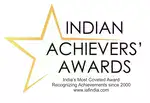How to Clarify and Align Your Research Goals for Maximum Impact
In any research project, whether business-related, market-focused, or academic, the clarity and alignment of goals determines if you will succeed or not. Without a defined purpose and strategy, research efforts can quickly become misguided, translating to wasted resources and unreliable results. To ensure that your research is focused, actionable, and impactful, aim to clarify your research goals and align them with broader business objectives. Whether you're working with a research support company or are part of a team at one of the global online survey companies, having clear research goals will provide a solid foundation for making data-driven decisions and generating meaningful insights. In today’s blog, we will guide you through the process of refining and aligning your research goals to maximize impact. Let’s go ahead!
How Clarifying Research Goals Sets the Stage for Impactful Results
A clear research goal serves as a roadmap, guiding every phase of your project, from design to execution and analysis. When research goals are ambiguous or vague, you risk steering the project off course, resulting in inconclusive or irrelevant findings. Focusing on well-defined goals can help ensure that your research remains purpose-driven and aligns with the needs of the stakeholders.
Understanding the Purpose of Your Research
Clarifying the purpose is the first step in any research endeavor. For example, if your goal is to explore consumer behavior for a product launch, your research goals should focus on understanding buyer preferences, motivations, and pain points. This contrasts with exploratory research that aims to understand broader trends within an industry. A research support company can assist in shaping these goals based on your specific needs, ensuring that the direction of the project is aligned with organizational priorities.
Avoiding Common Pitfalls
One of the main risks of unclear research goals is scope creep. Research projects often start with a broad question, and as new insights emerge, the focus gradually shifts. This can lead to excessive data collection, increased costs, and, ultimately, inconclusive results. To prevent this, constantly refine and reassess your goals to stay on track.
4 Essential Questions to Guide Your Research Goal Clarity
The process of clarifying your research goals involves asking crucial questions to gain a deep understanding of the project’s purpose, scope, and desired outcomes. Here are some of the most important questions to ask yourself or your team before embarking on a market research endeavor:
What is the Core Problem You Are Trying to Solve?
This is the foundation of any research project. If you're working with a global online survey company to gather data on consumer sentiment, your core problem could revolve around understanding how customer expectations have changed post-pandemic. A clear research question helps to focus the inquiry and determine the best survey methods and types of analysis needed.
What are the Desired Outcomes of Your Research?
What do you want to achieve with this research? Are you looking for qualitative insights to inform product development, or are you seeking quantitative data for strategic decision-making? For example, if your goal is to evaluate the effectiveness of an advertising campaign, you may need to define key performance indicators (KPIs) such as awareness, engagement, and conversion rates. This allows the research to align with both the project objectives and the strategic goals of the company.
Who Will Benefit from the Research?
Understanding the target audience is crucial when defining your research goals. Whether it's senior management, a product team, or an academic institution, knowing who will use the results ensures that the research is designed with the right focus and context. This is where aligning your goals with stakeholder expectations can significantly improve the relevance and utility of the research.
What Constraints Do You Need to Consider?
Every research project has its limitations, be it time, budget, data availability, or ethical considerations. For example, when engaging in survey programming, you may face limitations around the number of questions you can ask or the complexity of the analysis. By identifying these constraints upfront, you can adjust your goals and ensure that the project remains feasible and within scope.
How to Align Research Goals with Broader Objectives
Aligning your research goals with broader organizational or academic objectives ensures that the research contributes to larger strategic efforts and maximizes its impact.
- Linking Research to Business or Organizational Objectives: One of the most critical steps in aligning research goals is ensuring they support broader business or organizational objectives. For instance, if a company is exploring new market segments, research goals should focus on understanding customer needs, preferences, and behaviors in those segments. This ensures that the research findings can directly inform strategic decisions, such as marketing approaches, product development, or customer service enhancements.
- Aligning with Community Goals: Aligning your research with existing discourse is essential. For example, if you're conducting research on consumer psychology, your goals should align with existing studies on decision-making processes or behavior theories. This contributes to the broader body of knowledge and advances understanding in the field.
- Maintaining a Balance Between Innovation and Practicality: Research goals must be innovative, but they also need to be practical and achievable. A balance between cutting-edge insights and feasible execution is crucial for ensuring the research delivers tangible value. This is particularly important when working with complex survey programming or data collection techniques that require significant investment in time and resources.
3 Proven Strategies to Fine-Tune and Clarify Your Research Goals for Better Results
Once the initial research goals are outlined, the next step is refining them to ensure they are specific, measurable, and achievable.
Break Down the Research Goals into Manageable Objectives
Using techniques like the SMART framework (Specific, Measurable, Achievable, Relevant, Time-bound) helps break broad goals into actionable steps. If your goal is to understand customer sentiment toward a product, this could be broken down into objectives such as determining satisfaction levels, identifying key drivers of loyalty, and evaluating the effectiveness of specific features.
Maximize Research Success by Engaging Key Stakeholders
Engaging stakeholders in the goal-setting process ensures alignment and facilitates collaboration. Whether it’s through interviews, brainstorming sessions, or feedback loops, involving key participants helps clarify expectations and ensures that research objectives reflect the needs of those who will ultimately use the findings.
Leverage Preliminary Research to Set Stronger, Smarter Goals
Before finalizing your goals, it’s beneficial to conduct preliminary research. Reviewing existing industry reports or analyzing past surveys can provide valuable insights that help fine-tune your objectives. If working with a global online survey company, they can assist in identifying relevant data points and trends that will inform the refinement process.
Consult Today
Clarifying and aligning your research goals is crucial to ensuring that the research produces meaningful, impactful results. That’s how you can maximize the value of your research. That’s why you need to work with a reputable research support company that specializes in conducting survey programming. They can help deliver actionable data that will drive your business success. Are you ready to leverage the full potential of market research to drive your business forward? If your answer is “yes”, then you have come to the right place. When looking for a reputable market research support company with proven expertise, look no further than Unimrkt Research. With ISO20252 and ISO 27001 certifications under our belt, we're one of the leading market research firms that operates in over 22 languages. Call us at +91-124-424-5210, email us at sales@unimrkt.com or fill out our contact form, and we will get back to you shortly.
Quick Enquiry
Customer Service, We Make it Better
Recent Posts
- How to Clarify and Align Your Research Goals for Maximum Impact
- Mining Valuable Data: The Driving Force for an Effective Growth Marketing Strategy
- Speaking the Customers Language: 7 Tips for Meaningful Qualitative Research
- Creating Value for Investors: The Benefits of Primary Market Research
- Utilizing Closed-Ended Questions For Quantitative Market Research
- Capturing the Changing Interests of Millennials Through Qualitative Research
- Refining Unit Economics with Robust Quantitative Market Research
- A Concise Guide to Quantitative Market Research
- 3 B2B Market Research Trends That Could Shape 2024
- Eyes on 2024: Changes That Might Disrupt the Healthcare Industry This Year
- Cracking the Language to Make Survey Questions Inclusive in 2024
- Attracting Investors: How Market Research Can Solidify Your Case
- Solid Foundations: Ways to Enhance Trustworthiness in Qualitative Research
- What Makes CATI Research So Effective?
- Moderator Qualities That Improve Qualitative Market Research
- 5 Consumer Market Trends That Will Define 2024
- What are the strengths of quantitative research?
- How to Make Your Partnership with Primary Market Research Firms Fruitful
- A Quick Guide to Harnessing the Strengths of Quantitative Research
- Advice from Your Research Partner: Don't Compromise Quality on Online Surveys













